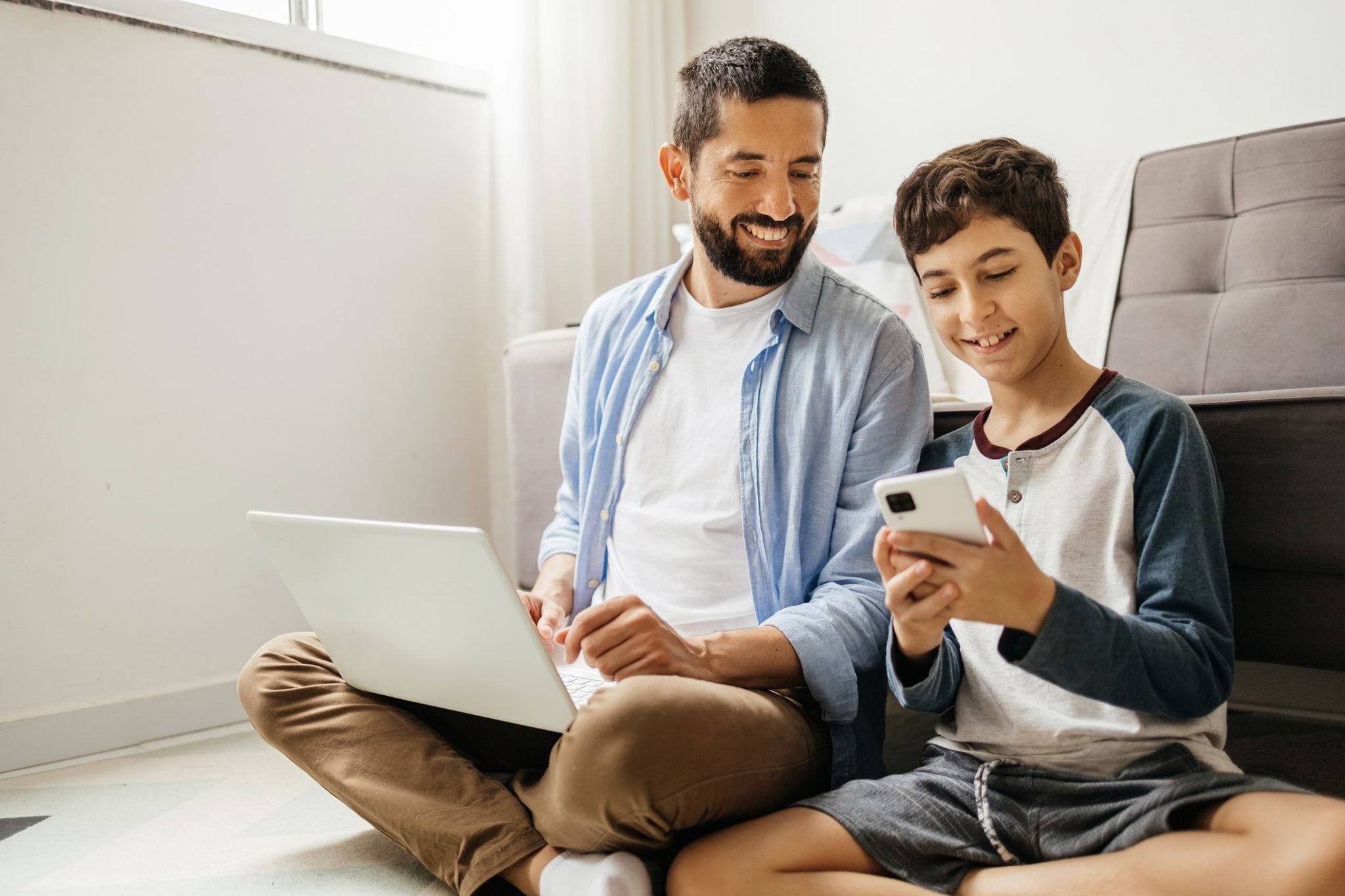Parents play an important role in supporting their young people to be safe online and on social media sites. You can help your children safely navigate their digital world and educate them to avoid harmful online experiences. You can explore websites, games, apps and social media together and set some rules and boundaries.
Your support and guidance can give your children the knowledge to make sound decisions online and confidence to ask for help when they need it. It is also important to stay informed about online safety.
You can read more about online safety basics on the eSafety Commissioner’s website.
You can also learn about the range of social media, games, apps and sites in the eSafety Guide, including what all the apps are, their minimum age requirements, how to protect personal information and how to report content within the apps themselves.
Supporting positive and safe online experiences for your child
There are a range of resources available to support you support your child.
The eSafety Commissioner’s website provides:
- parents website including information on how to have hard conversations about tricky topics like cyberbullying or pornography.
- webinars to give parents/carers the knowledge, skills and tools to support safe online experiences including an introduction to online safety and emerging technologies.
- family friendly videos and advice sheets in multiple languages to support your family stay safe online, getting started with social media, safer online gaming and getting help when your child is bullied online.
- advice to support parents to deal with online issues like sending nudes and sexting, pornography and cyberbullying.
- advice to directly support young people including how to deal with social media pressures.
- Bully Stoppers provides dedicated resources on cybersafety and cyberbullying for secondary school aged students and a dedicated resource page for parents. You can also access cyberbullying advice sheets for concerned adults through Bully Stoppers.
- Alannah and Madeline Foundation provides DigiTalk, an online safety hub for parents covering topics including equipping teens for digital success, supporting teenagers in a connected world, empowering your teen to game safely and overcoming teen bullying.
- Raising Children Network provides resources for parents of teens on topics including screen time, cyberbullying, sexting and gaming.
- Orygen’s ScrollSafe for parents guide helps parents talk with their teenage child about social media, online life and mental health.
Signs a child or young person might need support
A young person’s online activity might have a negative impact on them if they don’t also have a healthy balance of offline activities. Sometimes, a young person might be showing signs that they are having negative online interactions or that they are being bullied.
They may not tell you if an online ‘friendship’ or situation has become compromising or difficult because they are embarrassed or ashamed, or afraid it might make things worse.
Be alert to changes in your child's behaviour or mood. Watch for signs of withdrawal, anxiety, sadness or changed interactions with family or friends.
Concerning signs can include:
- less interest in social activities like meeting friends or playing sport
- not doing so well at school
- tiredness, sleep disturbance, headaches, eye strain
- changes in eating patterns
- reduced personal hygiene
- obsession with particular websites or games
- extreme anger when being asked to take a break from online activity
- appearing anxious or irritable when away from the computer
- becoming withdrawn from friends and family
You can learn more about warning signs of bullying on Bully Stoppers, warning signs of grooming and information about sextortion on the eSafety Commissioner’s website.
What to do if your child experiences something unsafe online
There are many ways that parents can raise a concern or get help if there is an incident.
- You can talk to your child’s school with any concerns you might have or if something has happened. Schools have policies and processes in place that can help and to make sure that your child gets extra support if they need it. Contact your child’s teacher or the school wellbeing team to start. Read more about talking to your school on Bully Stoppers.
- If your child has been involved in an online incident, it is important that you work together with your school to provide your child with the support they need. Learn how to help your child after an online incident on the eSafety Commissioner’s website.
- You can also contact the eSafety commissioner for advice and to report abuse. The eSafety reporting system helps parents of children who experience serious cyberbullying and image-based abuse by working with platforms to have the content removed.
- If someone is contacting your child and this contact is unwanted or makes them feel uncomfortable, there are things you can do to help. Read more about child grooming and unwanted contact and what to do on the eSafety Commissioner’s website.
- The Alannah and Madeline Foundation also provide advice on what to do in instances of image-based abuse online and through Artificial Intelligence (AI).
Where to reach out to for more support for your child
- Contact 000 for urgent assistance
- Talk to your child’s school
- Contact the eSafety Commissioner. for advice or to report online abuse
- headspace Counselling: Victorian Government secondary school students can access counselling services from headspace. Call: 1800 650 890 or visit headspace.org.au/eheadspace
- Visit your local GP if you want to talk about mental health support
- Kids Helpline: 1800 551 800 kidshelpline.com.au
- Lifeline: 13 11 14 lifeline.org.au
- Beyond Blue: 1300 224 636 beyondblue.org.au
Download the factsheet
Updated

